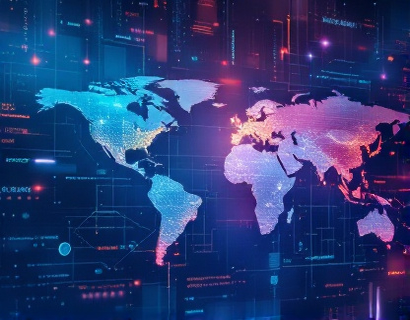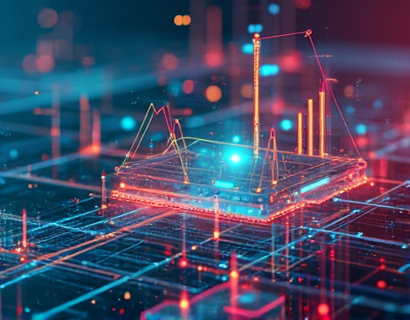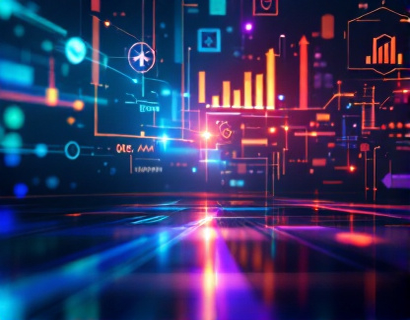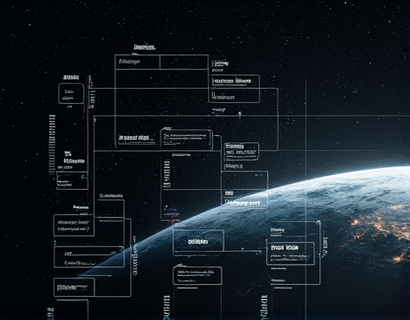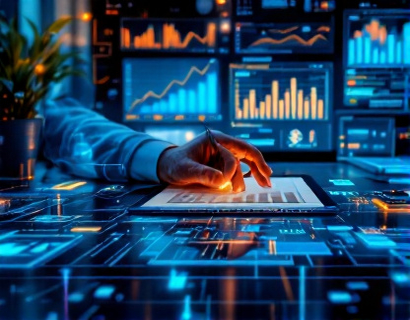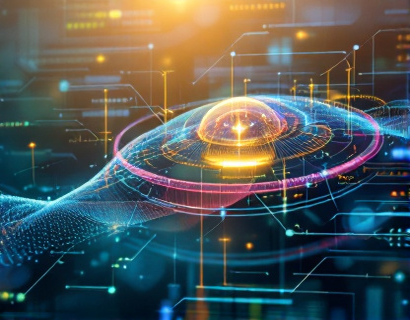Crypto and AI: Pioneering Enhanced Digital Experiences Through Innovative Tech Solutions
The convergence of cryptocurrency and artificial intelligence (AI) is ushering in a new era of digital innovation, transforming the way we interact with technology and finance. This intersection is not just a technological curiosity but a powerful force driving growth, enhancing user experiences, and redefining the digital landscape. As we delve into this topic, it's essential to understand the foundational technologies and their applications, as well as the broader implications for the future of digital experiences.
The integration of AI into cryptocurrency systems has led to the development of smart contracts that are more adaptive and efficient. Traditional smart contracts are static, executing predefined actions when certain conditions are met. However, AI-enhanced smart contracts can analyze real-time data, adapt to changing conditions, and make more informed decisions. This dynamic approach not only increases the reliability of smart contracts but also opens up new possibilities for automated and intelligent financial transactions.
One of the key areas where AI and crypto intersect is in the realm of decentralized finance (DeFi). DeFi platforms leverage blockchain technology to provide financial services without intermediaries, and AI can significantly enhance these platforms. For instance, AI algorithms can predict market trends, optimize portfolio management, and detect fraudulent activities with high accuracy. These capabilities not only improve the efficiency and security of DeFi but also make it more accessible and user-friendly.
Another significant application of AI in the crypto space is in the area of customer service and support. Chatbots powered by natural language processing (NLP) can provide 24/7 assistance to users, answering queries, and guiding them through complex processes. This not only enhances the user experience but also reduces the workload on human support teams, allowing them to focus on more critical tasks. The seamless integration of AI-driven chatbots in crypto platforms ensures that users receive timely and accurate information, fostering greater trust and engagement.
The use of AI in crypto extends beyond backend operations and user support. In the realm of digital assets, AI can play a crucial role in asset management and valuation. Machine learning models can analyze vast amounts of data, including market trends, economic indicators, and social media sentiment, to predict the value of cryptocurrencies. These predictions can help investors make more informed decisions, reducing the risk of losses and increasing potential gains. Additionally, AI can optimize trading strategies by identifying patterns and opportunities that might not be apparent to human traders.
Beyond finance, the combination of AI and crypto is revolutionizing various industries by providing robust and secure solutions. For example, in the healthcare sector, AI-driven blockchain applications can ensure the secure and privacy-preserving sharing of medical records. This not only enhances patient care but also facilitates research and development by providing access to large, anonymized datasets. Similarly, in the supply chain industry, AI and blockchain can create transparent and tamper-proof tracking systems, improving efficiency and reducing fraud.
The synergy between AI and crypto is also driving innovation in the field of identity verification and management. Traditional identity systems are often centralized and vulnerable to breaches. AI and blockchain offer a decentralized approach to identity management, where users have control over their personal data. AI algorithms can verify identities through biometric data and other secure methods, ensuring that only authorized individuals access sensitive information. This not only enhances security but also empowers users by giving them more control over their digital identities.
In the realm of gaming, the integration of AI and crypto is creating immersive and economically viable experiences. Blockchain-based gaming platforms use AI to generate dynamic game environments, adaptive difficulty levels, and personalized content. Players can earn cryptocurrency rewards for their in-game achievements, creating a new economic model where gamers are incentivized to engage and contribute to the game's ecosystem. This not only enhances the gaming experience but also opens up new revenue streams for developers and players alike.
The educational sector is another area where AI and crypto can make a significant impact. AI-powered educational platforms can offer personalized learning experiences, adapting to the needs and pace of each student. Blockchain can ensure the integrity and portability of educational credentials, allowing students to showcase their achievements to employers and academic institutions securely and transparently. AI can also facilitate the creation of virtual tutors and educational assistants, making high-quality education more accessible to a global audience.
To fully leverage the potential of AI and crypto, it's crucial to address the technical and regulatory challenges. Scalability remains a key issue for blockchain technology, as many networks struggle to handle high transaction volumes efficiently. AI can play a role in optimizing blockchain protocols, improving transaction speeds, and reducing energy consumption. Additionally, regulatory frameworks need to evolve to accommodate the rapid advancements in this space, ensuring that innovation is balanced with consumer protection and financial stability.
Looking ahead, the future of AI and crypto is promising, with numerous emerging trends and technologies on the horizon. One such trend is the development of AI-driven decentralized autonomous organizations (DAOs). DAOs use smart contracts to govern themselves, making decisions based on community input and AI-driven analytics. This decentralized governance model can lead to more transparent, efficient, and democratic organizations across various sectors.
Another exciting development is the integration of AI with quantum computing, which has the potential to solve complex problems that are currently infeasible for classical computers. Quantum AI could revolutionize cryptography, optimization, and data analysis, further enhancing the capabilities of crypto systems. As quantum technology matures, we can expect to see new applications and use cases that push the boundaries of what's possible in the digital world.
For tech enthusiasts and professionals, understanding the intersection of AI and crypto is not just beneficial but essential. This knowledge can drive innovation, open new career opportunities, and contribute to the development of more robust and user-friendly digital solutions. Whether you're a developer, a business leader, or a curious individual, staying informed about these advancements can help you navigate and thrive in the evolving tech landscape.
In conclusion, the combination of AI and crypto is transforming the digital experience in profound ways. From enhancing financial services and gaming to revolutionizing education and governance, the potential applications are vast and varied. As we continue to explore and harness the power of these technologies, we can expect to see even more innovative solutions that drive growth, engagement, and progress in the digital realm.







